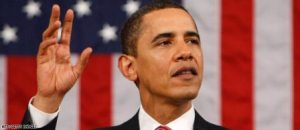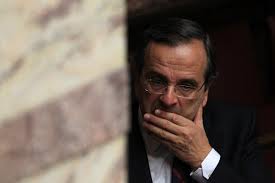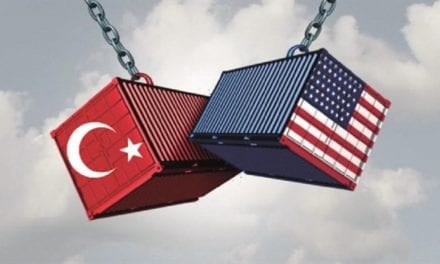by Calvin Freiburger, NewsRealBlog
Democrats were understandably thrilled that it was their guy, Barack Obama, who finally nailed Osama bin Laden, who has for the past decade been as elusive as he was hated. But just how much of a political boon is the victory for the president? That’s the question asked today by the Daily Beast’s Michael Tomasky, who sees it as a major shift away from the Democrats’ dovish image:
But now, the killing of Osama bin Laden is changing this equation dramatically. Alleged Muslim Barack Obama did in two and a half years what Bush couldn’t do in seven and a half. It wasn’t just the result. The nature of the operation is still breathtaking, weeks later, and the risk Obama took, which he conveyed with masterful cool in his 60 Minutes interview, is mind-blowing (imagine if bin Laden hadn’t been there!). You can call the president who oversaw the operation many things, but weak isn’t one of them.
To talk as if there were two separate hunts for bin Laden is an astoundingly dishonest oversimplification. The truth is that American intelligence officials spent years following the key intelligence trail:
Some time after Sept. 11, detainees held by the U.S. told interrogators about a man believed to work as a courier for bin Laden, senior administration officials said. The man was described by detainees as a protégé of Khalid Sheikh Mohammed, and “one of the few Al Qaeda couriers trusted by bin laden.”
Initially, intelligence officials only had the man’s nickname, but they discovered his real name four years ago.
Two years ago, intelligence officials began to identify areas of Pakistan where the courier and his brother operated, and the great security precautions the two men took aroused U.S. suspicions.
Last August, intelligence officials tracked the men to their residence in Abbottabad, Pakistan, a relatively wealthy town 35 miles north of Islamabad where many retired military officers live […]
President Obama was made aware of the compound when it was discovered last year. By mid-February, the intelligence was solid and since mid-March, Obama led five meetings with the National Security Council regarding the issue.
Intelligence officials worked with the U.S. military to plan the operation and a small team accepted the risk and began to train for it.
On April 29, this past Friday, Obama gave the final go ahead.
The extent of Obama’s role in the operation was essentially allowing the work that began under Bush to continue, and giving the final OK once we were ready to move in. Granted, that final decision was an important one for which Obama deserves credit, but let’s not pretend he masterminded the whole thing, or that the choice was anything other than a political no-brainer—considering how much heat Bill Clinton took for letting bin Laden get away before September 11, it’s hard to imagine that most presidents would dare risk going down in history as the one who let him get away after 9/11.
Watching some Republicans’ first stabs at responding to the event was both sad and hilarious. Some were gracious (even Dick Cheney), but the propaganda machine and its envoys cranked out the usual bluster. They tried the this-proves-that-torture-works argument, pinned to a slender reed involving a man named Abu Faraj al-Libi, but the known facts don’t support the contention that torture played a major role. Then Bush administration torture-policy architect John Yoo played against type by asserting that it was cowardly to kill bin Laden rather than taking him alive. Things finally reached self-parody when Andrew Card of the Bush White House (the one that declared “Mission Accomplished” in Iraq roughly 4,200 fatalities ago) snarked that Obama was pounding his chest too much.
No doubt there are some Republican partisans who’ve been nitpicking for political expediency, but Tomasky also belittles serious points, particularly regarding the effectiveness of harsh interrogation tactics. As former attorney general Michael Mukasey writes, waterboarding helped break Khalid Sheik Mohammed:
KSM disclosed the nickname — al Kuwaiti — along with a wealth of other information, some of which was used to stop terror plots then in progress. He did so after refusing to answer questions and, when asked if further plots were afoot, said that his interrogators would eventually find out. Another detainee, captured in Iraq, disclosed that al Kuwaiti was a trusted operative of KSM’s successor, abu Faraj al-Libbi. When al-Libbi went so far as to deny even knowing the man, his importance became obvious.
The substance of Obama’s role in the Abbottabad raid aside, the politics aren’t such a slam-dunk either. A fair amount of voters were swayed at first, and Obama will be able to carry this superficially appealing talking point with him into the election, but whatever bounce he got in the polls seems to have disappeared. And as Tomasky notes, Obama is still vulnerable on other aspects of foreign policy, including his handling of our relationship with Israel, our continued presence in Libya, and the prospect of cutting defense spending.
Unlike the relatively easy call of ordering Osama bin Laden’s death, there is no bipartisan consensus on any of these issues, and they all require the president to make far more complex—and more consequential—value judgments. If the American people recognize the difference, Obama will still have a fight on his hands next year.



















